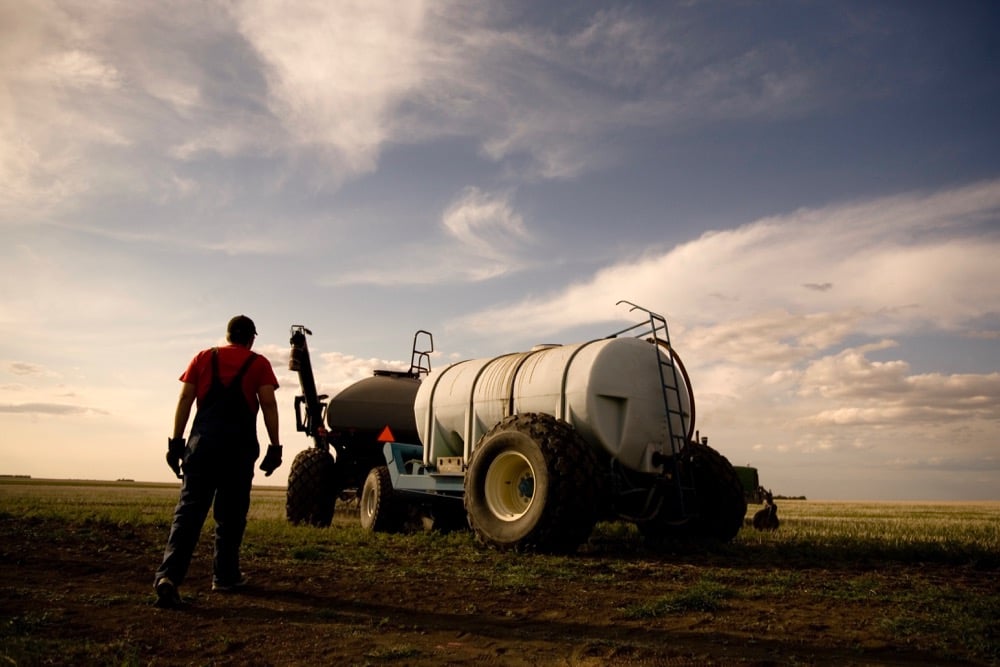Federal government offers farmers relief but may not go far enough, says expert

[UPDATED] Glacier FarmMedia—Farmers can expect some relief from the U.S. tariff threat by way of a government investment in business protection measures, though the new initiatives may not go far enough.
On Friday, the Department of Finance announced several investments meant to protect Canadian businesses, including $1 billion in financing through Farm Credit Canada (FCC).
Through its Trade Disruption Customer Support program, FCC said it will “provide relief for viable customers and non-customers… this includes access to an additional credit line of up to $500,000 and new loan terms.”
Read Also


Tariffs – where do we stand now?
As of March 7, goods under CUSMA were exempted from U.S. tariffs until April 2. Canadian tariffs on $30 billion of American goods remained in place.
Current FCC customers will also have the option to defer principal payments for up to 12 months on existing loans, FCC said in a news release.
The federal government also announced a $5 billion program to help Canadian exporters reach new markets.
U.S. President Donald Trump went ahead with a long-threatened 25 per cent tariff on most Canadian imports earlier this week before announcing a temporary suspension on goods covered by the Canada-U.S.-Mexico Agreement (CUSMA).
With Trump now threatening more reciprocal tariffs on Canadian commodities like dairy and lumber, however, the situation is still unstable.
Advance payments program changes
The government also announced it will return to the $250,000 interest-free loan limit of the Advanced Payments Program (APP) through the 2025-26 program year. It was previously announced at $100,000.
Tyler McCann, managing director of the Canadian Agri-Food Policy Institute, said he was glad to see the government taking some action.
“Now, when there is heightened uncertainty and when farmers are looking at potentially more expensive inputs going into this growing season, giving them that access to the higher APP amount is a good, easy thing to do.”
Announcements fall short
However, McCann said many of Friday’s investment announcements fall short.
Today’s announcements included the $5 billion Trade Impact Program, meant to help exporters reach new markets, something experts have been recommending. CAPI’s February Ag Policy Brief included the short-term recommendation for the government to “Double down on market access” and “prioritize political and technical resources to resolve market access barriers.”
McCann said the Trade Impact Program was not what he had in mind.
“I think that there’s a really big difference between extending more credits to Canadian businesses, which is largely what today’s announcement was, and the government investing in things like the agri-marketing program,” he said.
“The government could be saying today to food processors that are exporting, or the Canola Council or the Canadian beef exporters, ‘we are going to match any extra dollar you invest in market development in a new market through additional ag or marketing dollars. But see that as an investment, don’t see it as financing, like what the government has done.”
Access to credit not the issue
Likewise, he said the $1 billion investment into Farm Credit Canada may not see drastic results.
“My understanding is that access to credit has not been a challenge at FCC, and if you’re a farmer that’s needed credit, FCC has been able to work with you,” McCann said. “So, I’m not sure at the end of the day what impact this will actually have.”
“I think it would be very different if the government had announced an accelerated capital cost allowance, or a tax credit, or faster depreciation rules for investments that businesses make.”
Overall, McCann said he was disappointed the government did not do more with the time it was given between Trump’s initial threats and this week’s implementation of the tariffs.
“What I think is unfortunate is that we have not put time and energy, in the Canadian context, into getting our own house in order domestically,” he said. “And again, this is a little bit of that addressing financing issues. But there’s a lot of other things governments could and should be doing.”
Source: Farmtario.com

